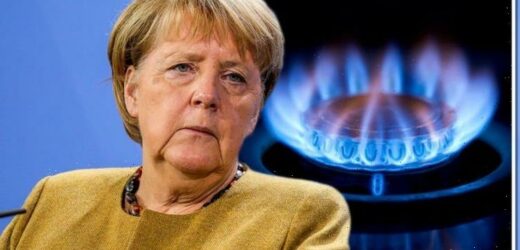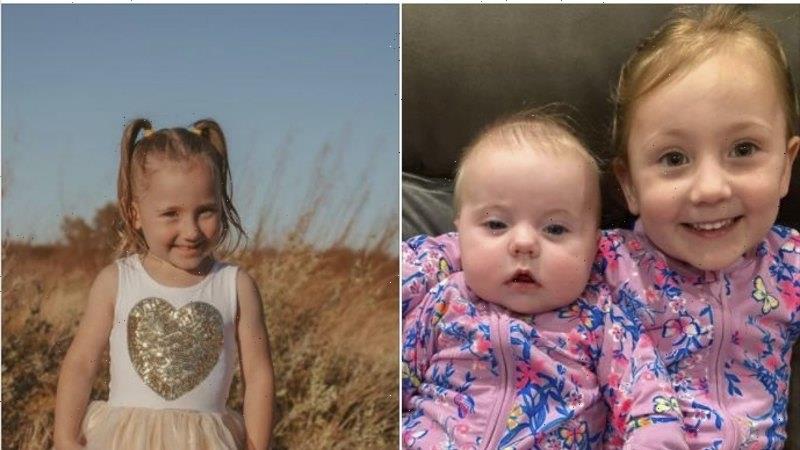Emmanuel Macron says gas prices are providing 'strong pressure'
We use your sign-up to provide content in ways you’ve consented to and to improve our understanding of you. This may include adverts from us and 3rd parties based on our understanding. You can unsubscribe at any time. More info
Dwindling supplies of natural gas, increased demand for power post-pandemic and the push for green energy have set the stage for a potentially catastrophic winter in Europe. Energy prices have spiked by as much as 250 percent since January and there is a growing concern people won’t be able to heat their homes in the coming months. The crisis has also touched the UK with the skyrocketing wholesale price of gas forcing nine small energy suppliers to go bust in September and another two collapsing in October.
With the threat of a cold winter looming over Europe, many have accused Russia of intentionally choking out the flow of natural gas into Europe to gain political leverage.
The Kremlin has denied using gas as a political weapon and President Vladimir Putin is reported to have called the claims “complete rubbish… and politically motivated tittle-tattle”.
Outside of foreign influence, Mike Foster, CEO of Energy and Utilities Alliance, has now told Express.co.uk some of Europe’s internal energy policies have allowed the crisis to develop.
According to the energy expert, the world as a whole is experiencing an increased demand for gas and energy.


Coming out of the pandemic, industries are desperate for electricity and gas suppliers have been favouring the Asian markets.
The push for net zero economies has also meant countries are opting out of burning fossils fuels and are instead placing their faith in wind and solar power.
However, Mr Foster said northern Europe, in particular, has suffered this year from a lack of wind, which highlights one of the biggest weaknesses of renewables – their intermittent nature.
In Germany, the country has also suffered in the wake of a policy to phase out nuclear power from the grid.
And though Germany has recently completed the controversial Nord Stream 2 pipeline with Russia, the country has been stuck in a regulatory deadlock with the Kremlin which many have tipped to have been a contributing factor to the incoming winter crisis.
Expert accuses Russia of blackmailing Europe over gas trade
The energy expert said: “Germany is having to source gas from elsewhere, so it’s adding to the demand pressures on gas that is also, potentially, destined for the UK.
“The German government made the decision, not just to reduce their consumption of coal to meet European climate change objective, but they also took the decision after the Fukushima nuclear disaster to reduce their reliance upon nuclear power as well.
“So they only were given gas and wind to produce their energy, and the one thing that northern Europe has suffered from recently is a lack of wind.
“That has magnified the problem and that bit is outside of the control of man.
“We can’t control when the wind blows and to compensate for that you have to build in safeguards – insurance policy if you like – with alternatives.


“Gas is that safeguard but if everybody wants it at the same time, that’s when your price spikes.”
The decision to abandon nuclear power formed part of Angela Merkel’s Energiewende or “energy transition” programme, after the 2011 Fukushima nuclear disaster in Japan.
As part of the programme, the German chancellor promised to expand Germany’s renewable energy capacity with incentives to invest in wind and power.
Ms Merkel has maintained her stance on nuclear and said earlier this summer: “There are other countries that choose differently, and in doing so it will be easier for them, in some ways, to achieve climate neutrality.
“I still believe that in the long term nuclear energy isn’t a sustainable form of energy production.”
The conflict has now led to an outright rebellion within the European ranks as French President Emmanuel Macron called on the European Commission to reassess its position on nuclear power.
He was joined by the leaders of nine other countries that believe nuclear energy needs to be part of Europe’s future energy plans.
In an open letter, the 10 countries said: “Nuclear energy is a clean, secure, unrestricted and competitive low-carbon source of energy.”
Source: Read Full Article


